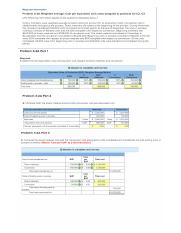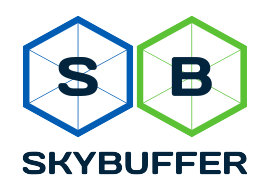
The International Financial Reporting Standards (IFRS) prohibits it, and businesses in the United States may not be able to use it forever. With robust reporting features, you gain valuable insights into your operations and identify areas for improvement. When you’re a Pro, you’re able to pick up tax filing, consultation, and bookkeeping jobs on our platform while maintaining your flexibility. Knowing the right forms and documents to claim each credit and deduction is daunting.
How to Prepare Income Statements for a Manufacturing Company FAQs
- Also, costs may be assigned to specific jobs (known as job costing) and then charged to the cost of goods sold when the inventory items in those jobs are sold to customers.
- The content on this website is provided “as is;” no representations are made that the content is error-free.
- If cost of production is higher, the value will be negative, culminating in factory loss.
- It is crucial to select accounting software that seamlessly integrates with other essential programs, such as inventory management, production scheduling, and invoice generation.
- Unlike retail and service-oriented operations, manufacturing businesses face a special set of challenges regarding accounting and costing methods.
If you are spending more on manufacturing the product than necessary, you will not meet your income targets. It is a practice first initiated by Toyota but has influenced manufacturing for decades, particularly the automobile industry. Since then, many other industries have come to regard removing waste from their processes as beneficial to the bottom line. Our mission is to empower readers with the most factual and reliable financial information possible to help them make informed multi-step income statement vs single step decisions for their individual needs. We follow strict ethical journalism practices, which includes presenting unbiased information and citing reliable, attributed resources.
See the standard costing, weighted-average method, FIFO, and LIFO topics for more information. Direct labor is the value given to the labor that produces your goods, such as machine or assembly line operators. Generally, this includes the cost of the regular hours, overtime, and relevant payroll taxes. Very often, this is listed in a bill of materials, which itemizes quantities and costs the materials used in your product. In process manufacturing, such as food and beverage or chemicals, the bill of materials is known as a production recipe. The above entry would increase the production cost, thereby reducing the gross profit disclosed by the trading account.
Manufacturing budgets also require business owners to compartmentalize their budgeting plans for each stage of the production process. This ensures the business stays on track by assigning the appropriate sales prices for the products. Budgeting processes in factories and other industries rely considerably on historical data and production expenses to help managers make an informed estimate for future budgets. Also known as factory overhead, manufacturing overhead refers to the cost of maintaining and operating your production facilities.
Manufacturing accounting tips for success
The method cannot be applied to long-term pricing decisions as it requires tangible information surrounding overhead costs and other aspects of production. Direct costing methods can be used in periods when the market sees changes and businesses might have to tweak previous decisions for the time being. This method is by far the most common method used in manufacturing businesses to accurately estimate their costs. In standard costing, businesses assign standard costs for raw materials and labor when factoring them into inventory and production expenses.
It would help if you had a manufacturing software solution that allows you to deal with the extra complexity of calculating inventory and the cost of your manufacturing goods. This software can be used to extract ncreif property index on the app store data and analyze trends, improve efficiency, and make the best business decisions. This accounting method tracks individual items of inventory, which is useful if you can identify each item with, for example, a serial number or RFID tag.
Basic manufacturing cost terms.
All manufacturers create budgets that they adhere to when running their business during a defined fiscal period. However, unlike other businesses, a manufacturing budget might have to rely on more variable costs and make calculated guesses on inventory parameters and goods sold to maintain a seamless flow of cash in the business at all times. Calculating TMC is imperative for gaining insights into the financial health of a manufacturing business and making the operation more cost-effective. This KPI determines the difference between the cost of production of a finished product and its market value. If the cost of production is lower than a product’s market value, a markup is added which makes up the factory profit. If cost of production is higher, the value will be negative, culminating in factory loss.
With numerous options available, selecting the right manufacturing accounting software package can be a daunting task. Moreover, the cost of such software can be substantial, making it crucial to make an informed investment decision. A periodic inventory system is a simplified system for calculating the value of an ending inventory.

It only updates the ending inventory balance in the general ledger when a physical inventory count is conducted. top 5 highest paid chief financial officer over the world Since physical inventory counts are time-consuming, few companies do them more than once a quarter or year. In the meantime, the inventory account in the accounting system continues to show the cost of the inventory that was recorded as of the last physical inventory count. This means that the inventory valuation in the accounting records will be inaccurate, except when a physical count is performed.
